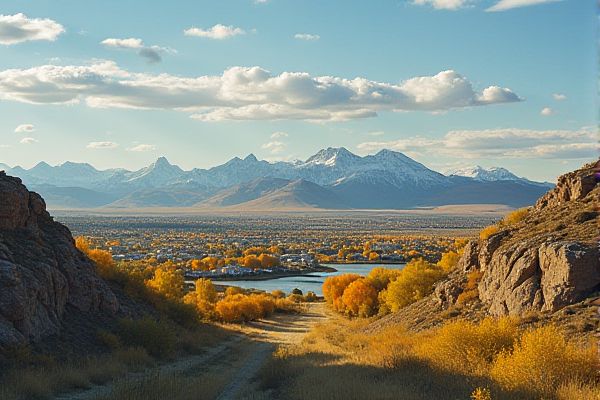
Local laws and regulations in Wyoming: Open container laws. Marijuana use prohibited. Firearm regulations. Hunting and fishing permits. Property tax rates. Business license requirements. Mineral rights and royalties. Water rights laws. State sales tax rate. Noise ordinances.
Open container laws
In Wyoming, it is illegal to consume or possess open containers of alcoholic beverages in vehicles on public highways, except in certain vehicles like chartered buses, limousines, and recreational vehicles with living quarters, and with specific exceptions for storage in areas not accessible to the driver or passengers. Violations can result in fines ranging from $200 to $500 and potential jail time depending on the number of convictions within a year. More information can be found on the Open Container Laws page.
Marijuana use prohibited
Marijuana use is strictly prohibited in Wyoming for both recreational and medical purposes, with severe penalties including imprisonment and fines for possession, distribution, cultivation, and sale of cannabis. To learn more about the specifics of these regulations and their implications, you can visit the Wyoming Cannabis Laws website, which provides detailed information on current legislation and enforcement practices.
Firearm regulations
In Wyoming, no state permit is required to purchase or possess rifles, shotguns, or handguns, but individuals with certain felony convictions are prohibited from possessing firearms. The state allows permitless concealed carry for residents, open carry without a permit, and does not regulate assault weapons, large capacity magazines, or ammunition types. For more detailed information on state gun laws, visit the NRA Institute for Legislative Action's website.
Hunting and fishing permits
In Wyoming, hunting and fishing permits are managed by the Wyoming Game and Fish Department, with requirements including specific licenses for residents and non-residents, conservation stamps, and exemptions for certain groups such as veterans and individuals with disabilities. Hunters and anglers must comply with regulations, including license types, stamp requirements, and specific rules for different game and fishing areas. To learn more about obtaining your hunting license and understanding the different requirements involved, you can visit the Wyoming Game and Fish Department for detailed information.
Property tax rates
In Wyoming, property tax rates are determined by the assessed value of the property, which is calculated by applying an assessment rate to the market value. For residential, agricultural, and commercial properties, the assessment rate is 9.5%, while industrial properties are assessed at 11.5%; the assessed value is then multiplied by the mill levy to determine the final tax amount. For more detailed information, you can refer to the Determining Property Tax page on the Teton County, WY Government website.
Business license requirements
In Wyoming, while there is no statewide general business license, businesses are required to obtain licenses and permits based on their specific location and industry. Local cities and counties necessitate business licenses, and additional permits might be required for specific activities such as sales tax, food service, or liquor sales. For more detailed information, visit this informative resource on Wyoming Business Licenses.
Mineral rights and royalties
In Wyoming, local regulations on mineral rights and royalties are governed by state and local statutes. The state has adopted laws such as the Surface Damage Act to address conflicts between oil and gas developers and surface owners. Meanwhile, local governments can regulate land use and mineral development through zoning and other measures. However, they must comply with comprehensive state regulatory schemes. For more detailed information, you can visit the Wyoming Law Review website to explore these frameworks further.
Water rights laws
In Wyoming, water rights are governed by the doctrine of prior appropriation, where the first person to put the water to beneficial use has the first right, and water is considered the property of the state. To acquire a water right, one must secure a permit from the state engineer and apply the water to beneficial use, with priority determined by the date of application and use limited to public interest and beneficial purposes. For detailed information on the process and regulations, you can refer to the Wyoming Water Rights document, which outlines the essential guidelines for managing water rights in the state.
State sales tax rate
The state sales tax rate in Wyoming is 4%, but total sales tax rates can range from 4% to 6% depending on additional local taxes imposed by counties, municipalities, and special districts. For more comprehensive information, you can explore the Wyoming Sales Tax Guide on Avalara's website, which offers detailed insights into how these taxes are applied and what they mean for businesses operating in the state.
Noise ordinances
In the City of Riverton, Wyoming, noise ordinances prohibit excessive noise, defined as sounds exceeding 80 decibels for most sources and 88 decibels for vehicles over 10,000 pounds on prescribed truck routes. Permits are required for loudspeakers and amplifiers, and relief from designated noise levels can be granted under specific conditions by the Chief of Police.
